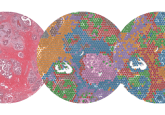Cataract surgery could reduce dementia risk: it’s clear to see

Researchers have found that cataract extraction surgery is associated with a 30% lower risk of dementia onset and a particular decrease in Alzheimer’s disease risk.
In a recent collaborative study, lead by Cecilia Lee (University of Washington, WA, USA), researchers assessed electronic health records from The Adult Changes in Thought (ACT; Kaiser Permanente Washington, WA, USA) study to evaluate how surgical removal of age-related visual impairments affected dementia development. After examining records from more than 3000 over 65’s they found that cataract removal surgery lessened the risk of all-cause dementia by 30%, uncovering new information on how age-related changes in our senses contribute to dementia.
Losing your vision is a hallmark of aging that affects many older people who are also at risk of dementia onset. The reduction of sensory input to the brain is a potential risk factor for dementia; therefore, interventions to improve age-related visual impairments may be vital to preventing dementia development.
To investigate this, Lee’s team tracked the health records of people in the ACT study – all over 65 years old – who had the age-related visual impairments of a cataract or glaucoma but without diagnosis of dementia. As part of the ACT study, each person’s cognitive ability was tested biennially to monitor for any cognitive decline that could indicate signs of dementia onset.
Over the average follow-up of 7.8 years, 853 out of 3038 participants with cataracts developed dementia, 709 of which were Alzheimer’s disease cases. Cataract surgery was performed in 45% of the cohort. The dementia development risk was 30% less for any form of dementia in those who received surgery, compared to the participants who did not. . The association was still strong after accounting for many potential factors such as smoking, years of education, APOE genotype, and healthy patient bias – all factors that have failed to be accounted for in previous studies. This lowered risk was observed for at least 10 years after cataract surgery.
 Infrared therapy: casting dementia treatment in a new light
Infrared therapy: casting dementia treatment in a new light
Infrared light therapy could alleviate symptoms in dementia patients, according to a pilot study.
“This kind of evidence is as good as it gets in epidemiology,” Lee (University of Washington) commented. “This is really exciting because no other medical intervention has shown such a strong association with lessening dementia risk in older individuals.”
Researchers compared the results of cataract surgery that restores vision to glaucoma surgery, which cannot restore vision loss. Glaucoma surgery was performed on 14% of the 728 participants who were diagnosed with glaucoma. Upon comparison, no association between dementia risk and glaucoma surgery was observed in these sensitivity analyses.
“These results are consistent with the notion that sensory input to the brain is important to brain health,” added co-author Eric B. Larson (Kaiser Permanente Washington).
An alternate theory mentioned by Lee is that “[Intrinsically photosensitive retinal ganglion cells] in the retina are associated with cognition and regulate sleep cycles, and these cells respond well to blue light. Cataracts specifically block blue light, and cataract surgery could reactivate those cells.”
Improving our understanding of the relationship between age-related changes in the eye and brain may lead to the development of ocular biomarkers for dementia onset. Future work in the field will need to assess how subsequent cataract surgeries can affect dementia risk, perform validation in diverse study populations, and investigate the underlying mechanisms of the association. Lee’s future work will utilize non-invasive imaging and artificial intelligence for diagnostic tools in Alzheimer’s.





